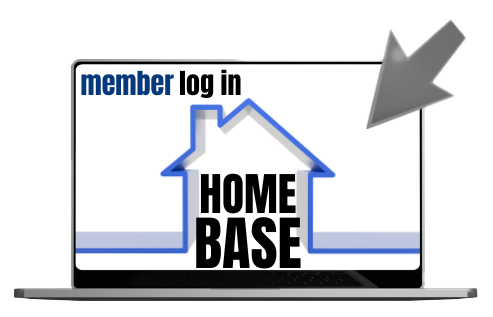The National Association of REALTORS® adopted the Code of Ethics in 1913. Since then, the Code has been continuously amended to reflect changes in laws and practice. REALTORS® everywhere have agreed to meet the Code’s high standards.
The professional standards process plays a very important role in a REALTORS® Association. It helps to ensure honorable, faithful and competent service to clients, customers and other members of the public by enforcing the Code of Ethics. It is a means of resolving differences. The following information has been prepared to help you understand the professional standards process.
NAR Code of Ethics/Professional Standards Resources
NAR Information on Ethics Complaints, Arbitration Requests, and Related Topics
PLEASE NOTE: RASCW has joined the new Statewide Professional Standards Program, which means the Wisconsin REALTORS® Association (WRA) provides Arbitration, Mediation, and Ethics violation procedure facilitation and enforcement for our members. Click here for information on the Statewide Professional Standards Program and how to file an Ethics Complaint or Request for Arbitration through the WRA.
If you have questions relating to the WRA Professional Standards Program or processes, please email psa@wra.org or call (608) 242-2299.
RASCW does provide ombudsman services to its members. The ombudsman’s role is primarily one of impartial communication and conciliation, not adjudication. An ombudsman does not determine whether ethics violations have occurred or who is entitled to compensation; rather the person anticipates, identifies and resolves misunderstandings and disagreements before matters ripen into formally filed arbitration requests or possible formal charges of unethical conduct. Any inquiries or information obtained via the ombudsman process are subject to confidentiality. For more information about available ombudsman services, please contact Lisa Marshall: lisa@wisre.com or 608-240-2800
General Information
Before processing a complaint with a REALTORS® Association, you must first determine if the real estate agent involved is a REALTOR®. Not all real estate agents are REALTORS®. Only those who belong to a REALTORS® Association can use the term REALTOR®.
When joining an Association, all members agree to abide by the Code of Ethics of the National Association of REALTORS® as a continuing condition of membership. It is because of a REALTOR®’s obligation to abide by the Code of Ethics that you can file a complaint at a REALTORS® Association.
You should determine whether your complaint concerns an ethics matter or an arbitration of a dispute.
An ethics complaint charges that a REALTOR® violated an Article(s) of the Code of Ethics. Arbitration provides a means for resolving a monetary dispute arising out of a real estate transaction that parties have been unable to resolve themselves.
An arbitration request often involves one member in disagreement with another member, usually over a commission dispute. Sometimes, an arbitration concerns a dispute between a customer or client and an Association member.
If your situation concerns both ethics and arbitration, the Association will handle the arbitration portion separately. The Association will consider the ethics complaint only after it has completed the arbitration. The Association always holds arbitration first.
Ethics complaints must be filed within 180 days after the facts constituting the matter complained of could have been known in the exercise of reasonable diligence or within 180 days after the conclusion of the transaction, whichever is later. Requests for arbitration must be filed within 180 days after the closing of the transaction, if any, or within 180 days after the facts constituting the arbitrable matter could have been known in the exercise of reasonable diligence, whichever is later.
Mediation is a process where parties, with the assistance of a neutral mediator, attempt to resolve their dispute by mutual agreement. REALTOR® mediation is a free alternative dispute resolution technique used as an alternative to litigation or formal ethics or arbitration hearings. Mediation services may be requested through the Statewide Professional Standards Program.
Limitations
The Association cannot try an Association member for the violation of the Wisconsin real estate license law or any other alleged violation of the law. Its jurisdiction only covers violations of membership duties. The Wisconsin Department of Safety and Professional Services (DSPS) solely controls the real estate agent’s license to sell real estate. For the same reason, the Association cannot suspend or terminate the license of one of its members. If you think a person has violated the license law, you should contact the DSPS at (608) 266-5511, or you can file a complaint with the DSPS here.
Filing an Ethics Complaint
Any person, whether a member or not, may file a complaint against an Association member alleging a Code of Ethics violation for any of the 17 Articles. The complaint must be filed with the Association having jurisdiction over the individual named in the complaint. Ethics complaints must be filed within 180 days after the facts constituting the matter complained of could have been known in the exercise of reasonable diligence or within 180 days after the conclusion of the transaction, whichever is later.
Filing a Request for Arbitration
The following individuals may file an arbitration request:
- REALTOR® members who are principal brokers.
- REALTOR® members who are not principals, provided his or her principal broker joins in the request.
- Clients or customers of the REALTOR®.
Arbitration is not a disciplinary proceeding nor does it award damages. By becoming and remaining a member of the REALTORS® Association, each REALTOR® binds him or herself to arbitrate certain disputes. Not every situation may be arbitrated by the Association. Conditions and limitations exist which you must consider. The Association will explain these conditions and limitations to you.
Requests for arbitration must be filed within 180 days after the closing of the transaction, if any, or within 180 days after the facts constituting the arbitrable matter could have been known in the exercise of reasonable diligence, whichever is later.
Click here for information on how to file a request for arbitration through the WRA’s Statewide Professional Standards Program.
NAR Arbitration Guidelines


